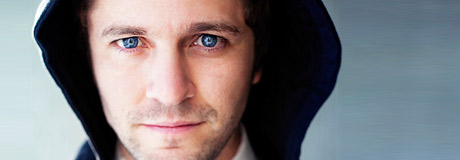How to Reclaim Your Life After Childhood Abuse

 Photo by
Utomo Hendra Saputra
Photo by
Utomo Hendra Saputra
This article deals with child sexual abuse, a difficult issue for most to stomach. Because, as Leslie points out, one in four women and one in seven men have been abused before they are 18, and because so many abused children grow up to seek help from posts like those on TSN, I thought it was important to publish Leslie's article. However, if the subject is triggering, please seek a safe space where you can read this article, ask a trusted friend to read it with you or come back to it when you're feeling more ready.
I’m a survivor of child sexual abuse.
But even after decades I still can’t say that completely without shame. That’s the nature of this kind of abuse. Logic tells us we were children. We had no choice.
But the wounds go deep and are so hidden that for me, and many like me, that feeling of shame becomes as much a part of who we are as our eye color. We just learn to live with it.
We survive. But once innocence is lost, it can never return.
I believe many survivors of childhood abuse are drawn to spiritual traditions. Those of us who manage to fight the low self-esteem and the numbing lure of drugs and alcohol still need to make sense of what happened.
Move On & Heal
How do we explain the levels of cruelty and selfishness humans are capable of inflicting on the most vulnerable members of society? How do we become better and more whole humans through and in spite of it?
We know we need to forgive in order to move on and heal, and that’s something most of us can’t do without help. Even with a solid spiritual foundation, forgiveness can take a lifetime.
My perpetrator died when I was seven years old. I doubt if I will ever be able to say I’m sorry he died, or I wish he had lived longer.
When he died, the abuse ended, and I was able to grow up living a relatively normal life. Except nothing is ever really normal again once you’ve been raped by your grandfather.
The silence around my abuse was nearly as damaging as the assaults themselves. As a young child I didn’t know how to tell. I tried.
“Grandpa is mean to me,” I clearly remember squeaking out to my parents from the backseat of their Oldsmobile as they drove me to my grandparents’ farm while they went away for the weekend.
Burying It Deep Inside
Like any good parent in 1962, my mother thoroughly admonished me and told me to never say things like that about grandfather again. So I kept it buried deep inside.
When I finally told her, I was close to 30. The first words out of my mother’s mouth were, “You can’t tell your father. It would kill him.” And being an obedient daughter, I obeyed.
I regret that I listened to her. I regret it not out of spite, but out of love. I regret it because, while honesty might not always be the best policy, I think truth always is.
Truth can heal us when we allow it. My father was bigoted, opinionated and had a wicked bad temper. But he was not his father. He’s been dead nearly 15 years now, and I wish I could tell him how much I appreciate that about him.
Are you a survivor of child sexual abuse? If you’re not, chances are you know someone who is.
Some statistics say one in four women and one in seven men have been molested, raped or abused before they are 18. That’s a staggering number.
And most survivors keep it quietly to themselves. We want to believe society won’t blame us, but experience tells us otherwise.
But healing is possible, and while no one would ever wish abuse on any child, you can turn your pain into a powerful tool of transformation.
1. Accept Healing Takes Time
When experts say the scars of child abuse last a lifetime, they mean it. In my mid-20s, when I first began to deal with my abuse, I was a single mother and didn’t have much money.
But I saw a counselor at a low-cost mental health clinic to help guide me into being a better parent as well as process what had happened to me. I took workshops with Ellen Bass, editor of I Never Told Anyone and The Courage to Heal.
I spent many hours sitting with other women in her living room in Santa Cruz, Calif., pouring our words into journals and reading them aloud to each other. I will always be grateful to her and the women who shared their stories and started me on the path toward healing.
Then one day I decided I was finished. The abuse was behind me, and I wouldn’t let it define who I was. I quit speaking of it and, while it never left me, I pushed it to the back of my mind.
Then 30 years later, when everyone closely involved was dead, even more graphic memories began to surface, and I found myself reliving the abuse like it happened yesterday.
2. Take Pride in What Makes You Unique
Most survivors of abuse have lived much of their lives feeling different, like something is wrong with them. Yet the truth is, as a survivor you’ve probably honed skills that have not only helped you cope, but can be used as tools of transformation.
While some survivors of abuse grow up and continue hurtful patterns, many others have a heightened sensitivity to others, a particular empathy with animals and high creativity. Be proud of your survival skills.
3. Don’t Judge Your Emotions
You’re on a spiritual path, but that doesn’t mean it will be easy. Expect highs and lows. If you sometimes feel overwhelmed, angry or not ready to forgive your perpetrator, don’t be hard on yourself.
Chances are, especially if you were very young when the abuse happened, your child self didn’t have words for what was happening to you. This can cause confusion and make you doubt your own feelings. Reclaiming and naming your emotions without judging yourself for them is a powerfully healing step.
4. Reach Out To Others
This can take many forms. If you need help, don’t be afraid to ask. Asking for help is a sign of strength, not weakness. Share with other survivors.
Knowing you’re not alone, that others have been through what you have makes it easier to bear and to heal. Your story can help others who may be suffering in silence to know they are not alone.
Wherever you are in the process of healing from the trauma you’ve experienced is the right place for you. I never would have dreamed at 57 I would still be trying to piece together what happened long ago on an Ohio farm, but few things affect a child as profoundly as sexual assault.
Once I believed that sexual abuse steals a child’s soul, but now I realize I was wrong. Our innocence may have been stolen, but for those of us who have been abused, our souls remain very much intact. We can reclaim our stolen lives.













I can’t believe what I have read here. I have just separated from my wife of 20 years. I became aware after 6 months together that she had been sexually abused as a child. Exactly the same as you. Grandfather, parents in denial and subsequently no treatment. She then had a broken marriage. I have at different times tried to get her to see someone about it, even offering to go to another city so no one knew but she always said she was unaffected and it never crossed her mind. I decided that I would always be there regardless for her as I wasn’t going to desert her. I have made allowance for some bad behaviour over the years but as years went on the bad behaviour became more frequent to the point I looked into some of it believe she is narcissistic, NPD. She shows all the signs.
She has been an expert in fooling people but some people close to her noticed over the last couple of years she is erratic and sometimes irrational. While I tried everything I couldn’t hold things together and she discarded me. I asked her family to help a couple of years ago but nothing so she has now walked out on 2 marriages and destroyed 2 families. I heartbroken that the marriage is over as I am still in love with her. Over the last few years I and others have seen the look in her eyes change and am sure there is now lots of pain there. It has been an awful experience but you can’t help someone who doesn’t believe there is a problem. I am trying to put my life together now.
Leslie,
Wow, you’re amazing & so is your insight!!! Though I’m not a child of sexual abuse, I’m deeply, deeply pained when I hear of someone who was/is & even more disturbed when their experience is dismissed (by anyone), but particularly by those who are suppose to protect their child. I’m touched by your story & I pray your journey of healing finds its way into as many hurt & affected souls as possible.
With peace & blessings,
ST
As a victim of childhood sexual abuse, specifically incest at the hands of my biological father from the ages of 11-24, I know only too well the shame that never truly goes away, even years and years after leaving the situation. As for keeping silent about the abuse and no-one but me knowing the truth, I told no-one, not even my husband of over 40 years, until I was 65. That’s how deep the shame goes, how much we fear loss of the love from those who love us, and all the rest. Thankfully, my husband and children rallied around me when I finally “came out” and encouraged me to write a memoir about it all. That book, “No Tears for my Father” went on to get a Gold Medal and has helped hundreds of victims worldwide realize they are not alone. At the urging of friends and fans, I then wrote my second memoir detailing my healing by once again learning to love myself and stop blaming myself for what happened. I titled that book, “Learning to Love Myself” because that’s what we must do in order to heal.
Great article. Simple, but profound. I am a survivor myself and have been a trained support group facilitator for nearly 30 years now. Your points are right on target. I just celebrated my 60th birthday, and I’m still working on my recovery. I’ve come a long way, but it still trips me up sometimes.